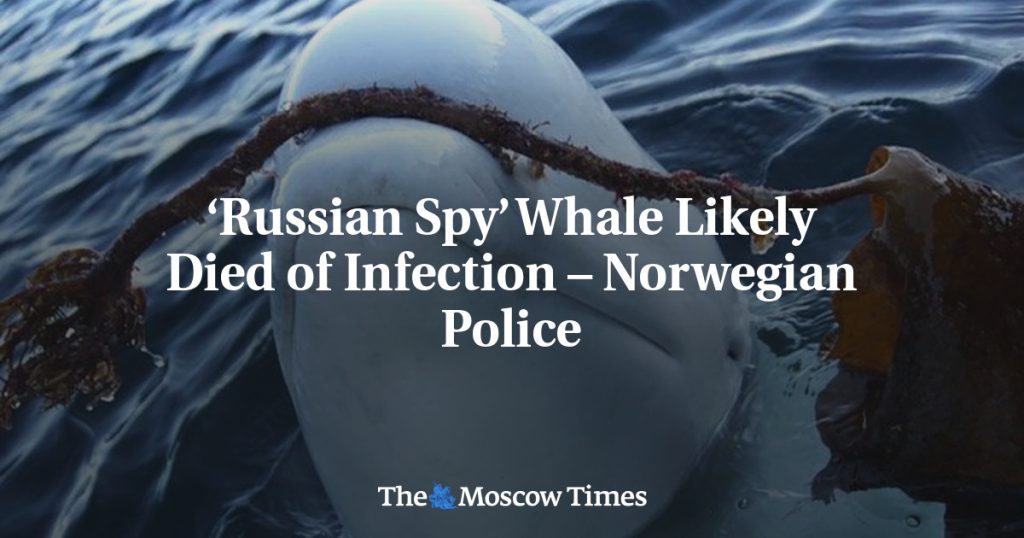Norwegian police have determined that a beluga whale found dead in Norway in August most likely died of an infection rather than gunshot wounds, dispelling suspicions that the whale, nicknamed “Hvaldimir,” was a Russian spy. The whale gained fame in Norway for its supposed ties to Moscow and its appearance off the country’s coast in 2019. After being found dead in a bay on Norway’s southwestern coast, animal rights organizations claimed the whale had been shot. However, an autopsy conducted by the Norwegian Veterinary Institute revealed a stick lodged in the whale’s mouth, leading to a bacterial infection that ultimately caused its death.
The stick found in the whale’s mouth may have prevented it from eating properly, increasing the risk of infection. Norwegian police did not find any evidence of gunshot wounds and declined to launch an investigation, stating that there was no indication of illegal activity in the whale’s death. When Hvaldimir was first discovered in 2019, it was wearing a harness with the words “Equipment St. Petersburg” printed on it, leading to speculations that it may have been trained by the Russian navy. Russian officials have not responded to the allegations that the whale could have been a spy.
The story of Hvaldimir highlights the curious case of a beluga whale that captured the attention of the Norwegian public due to its mysterious origins and potential ties to Russia. The whale’s friendly interactions with humans and the presence of the harness have raised questions about its past training and connections to military activities. Despite the lack of concrete evidence linking the whale to espionage, the incident has sparked speculation and intrigue among observers.
The Norwegian Police’s conclusion that Hvaldimir’s death was most likely due to a bacterial infection resulting from a stick lodged in its mouth puts to rest some of the conspiracy theories surrounding the whale’s demise. Animal rights organizations had raised concerns about the possibility of foul play, but the autopsy results indicate a more natural cause of death. This finding may prompt a reevaluation of the initial suspicions aimed at the whale and shift the focus towards understanding its behavior and interactions in the wild.
The case of Hvaldimir serves as a reminder of the complex relationship between humans and marine life, as well as the need for conservation efforts to protect vulnerable species like beluga whales. The whale’s story sheds light on the impact of human activities on marine ecosystems and the challenges faced by marine animals in their natural habitats. Moving forward, the incident may lead to increased awareness and discussion about the welfare of marine wildlife and the importance of preserving their habitats.
In conclusion, the investigation into Hvaldimir’s death has provided some answers regarding the mysterious circumstances surrounding the whale’s life and demise. While the initial speculations about the whale being a Russian spy have been largely debunked, the case has brought attention to issues related to marine conservation and human interactions with wildlife. As the story of Hvaldimir fades from the headlines, the lessons learned from this unique case can continue to inform efforts to protect and conserve marine species in the future.


